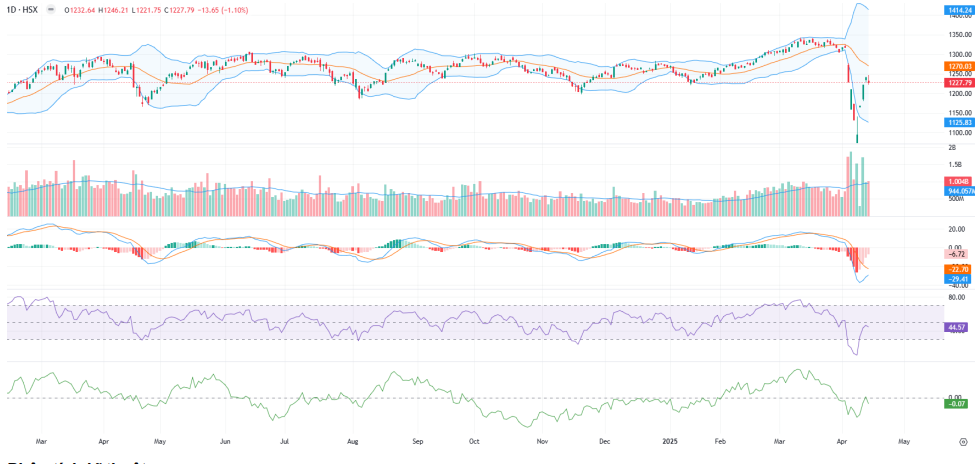This is the issue many businesses are waiting for to "stimulate" the long-term capital mobilization channel for the economy.
CREDIT RATING REDUCTION, CONDITIONS FOR PROFESSIONAL INVESTORS
In the draft submitted for comments to ministries and branches in late 2022, the Ministry of Finance proposed to postpone the implementation of the regulations on determining the status of professional securities investors in Decree 65. Specifically, this regulation will be implemented from the beginning of 2024 instead of from the beginning of 2023. At the same time, this agency also proposed to extend the implementation time by 1 year for the regulation requiring mandatory credit rating until January 1, 2024. However, for corporate bonds issued to the public, the roadmap is still to have a credit rating from January 1, 2023.
In addition, this agency also proposed to postpone the implementation of the regulation on the time of bond distribution within 1 year until January 1, 2024 (Decree 65 stipulates that the time of bond distribution for each issuance shall not exceed 30 days, the previous regulation is 90 days). In addition, the Ministry of Finance proposed to allow enterprises to change the maturity and exchange issued bonds for a maximum of 2 years compared to the maturity in the issuance plan announced to investors. At the same time, it is recommended to allow the issuing enterprise and the bond-holding investor to agree on converting the principal and interest payments of the due bonds into loans or other assets...

It is necessary to consider strengthening the supervision of state agencies over corporate bond issuance.
Dr. Nguyen Tri Hieu commented that postponing the application of regulations on determining professional investors by 1 year is appropriate in the context of the current difficulties of the stock market. However, it is necessary to shorten the time for investors to hold a securities portfolio worth VND2 billion for 30 to 60 days instead of extending it to 180 consecutive days. The revision still ensures to limit investors who are not equipped with knowledge about bonds, avoiding risks for themselves when pouring money into this product as in the past, but is not too strict when requiring to extend the time of holding securities. In addition, it is necessary to add a specific debt deferral program for a number of enterprises (with accompanying conditions) to have time to recover, avoiding the situation of a chain collapse following the domino effect. These are enterprises that have issued bonds in accordance with regulations, have clearly disclosed information and have not violated the use of capital mobilized from corporate bonds...
STRENGTHENING MONITORING ACTIVITIES
In a document providing comments on the Draft Amendment and Supplement to Decree No. 65, the Vietnam Chamber of Commerce and Industry (VCCI) stated that requiring mandatory credit ratings is an important basis for improving the health and confidence of the market, bringing the Vietnamese bond market closer to international standards. However, the issue of credit ratings has always faced a "chicken and egg" situation - when there is no demand, it is difficult to have supply, and when there is no supply, it is difficult to make it mandatory.
If the mandatory credit rating regulation is applied immediately from the beginning of 2023, it will cause many difficulties for bond issuance because service providers are not capable of serving a large number of customers as at present. However, if the application deadline is postponed to early 2024, this situation may repeat itself if no issuer uses the service in 2023. Therefore, VCCI recommends that the drafting agency consider the option of separately identifying a number of issuing enterprises that are required to have a credit rating in 2023, and then applying it to the general public in 2024.
Some conditions for issuing corporate bonds must be stricter in the long term. For example, in the issuance plan, the projects of that enterprise must be approved and licensed.
Dr. Huynh Thanh Dien
Agreeing, Dr. Nguyen Tri Hieu said that while postponing the application of some other regulations to create conditions for businesses and investors to participate in the corporate bond market, the requirement for credit rating should be implemented immediately. This is a regulation to protect the rights of investors and avoid risks in the market. Moreover, credit rating should be applied to all companies when they want to issue corporate bonds to the public (Decree 65 states that the total value of issued bonds is greater than VND500 billion and greater than 100% of the enterprise's equity is required to have a credit rating). At the same time, it is necessary to strengthen the role and responsibility of the supervisory agency for businesses when issuing bonds to the public and the use of mobilized funds. Because in the past, the regulations did not clearly state which agency supervises both the issuance and the use of capital, businesses have made mistakes and led to the consequence of being unable to pay bondholders.
Dr. Huynh Thanh Dien, Ho Chi Minh City University of Economics, analyzed: The revision or postponement of some regulations in Decree 65 is only short-term. The most important issue is that investor confidence has been greatly reduced after violations in the past year. Therefore, policies related to corporate bonds must be designed to create confidence for investors. For example, when issuing bonds, each enterprise must have a business plan with the purpose of using capital. However, investors will need to be concerned about whether that business plan has been appraised by anyone or not? How will that appraisal unit be responsible if the enterprise uses capital for the wrong purpose? Similarly, many people who buy bonds through banks often mistakenly think that if the enterprise cannot repay the debt, the bank will pay on their behalf. But in reality, this is completely wrong because the bank does not guarantee payment. Therefore, it should be clearly regulated whether projects guaranteed by banks must be accompanied by payment guarantees or not? Only then will investors boldly invest money in bonds.
According to the Ministry of Finance, Decree No. 65 stipulates that enterprises are not allowed to change the maturity of corporate bonds that have been issued and have outstanding debt. However, the financial and monetary markets are currently facing liquidity difficulties, making it difficult for enterprises to issue new bonds while there is pressure to repay bonds maturing in 2023 - 2024. Therefore, allowing the extension of corporate bonds is aimed at supporting enterprises in their ability to mobilize capital to serve production and business activities and restructure debts. Allowing this extension in terms of the overall market will help disperse the volume of bonds maturing in 2023 - 2024, but must be approved by bondholders representing over 65% of the total outstanding corporate bonds (as per current regulations).
Dr. Huynh Thanh Dien emphasized: When it is required to have a corporate credit rating, the responsibility of the rating organization must be clearly stated. Similarly, which agency supervises the issuance plan or capital use must also be clearly stated. "Some conditions for issuing corporate bonds must be stricter in the long term. For example, in the issuance plan, the projects of that enterprise must be approved and licensed. Not to mention the project of building apartments or urban areas... even if an enterprise wants to borrow capital to build a factory, the project must have approval from the competent authority. If it is not clearly stated, like before, any enterprise can issue bonds and mobilize capital from the people even though the project is only "drawn". Only then can investors feel secure and from there, enterprises with feasible projects and good business can easily access long-term capital sources", Dr. Huynh Thanh Dien added.
Source: https://thanhnien.vn/kich-lai-thi-truong-trai-phieu-doanh-nghiep-185230203220023277.htm


![[Photo] Ho Chi Minh City after 50 years of national reunification through buildings and symbols](https://vstatic.vietnam.vn/vietnam/resource/IMAGE/2025/4/15/a224d0b8e489457f889bdb1eee7fa7b4)
![[Photo] National Assembly Chairman Tran Thanh Man attends the summary of the organization of the Conference of the Executive Committee of the Francophone Parliamentary Union](https://vstatic.vietnam.vn/vietnam/resource/IMAGE/2025/4/15/fe022fef73d0431ab6cfc1570af598ac)

![[Photo] Welcoming ceremony for Prime Minister of the Federal Democratic Republic of Ethiopia Abiy Ahmed Ali and his wife](https://vstatic.vietnam.vn/vietnam/resource/IMAGE/2025/4/15/77c08dcbe52c42e2ac01c322fe86e78b)
![[Photo] General Secretary To Lam meets with veteran revolutionary cadres, meritorious people, and exemplary policy families](https://vstatic.vietnam.vn/vietnam/resource/IMAGE/2025/4/15/7363ba75eb3c4a9e8241b65163176f63)
![[Photo] Air Force actively practices for the April 30th celebration](https://vstatic.vietnam.vn/vietnam/resource/IMAGE/2025/4/15/16fdec3e42734691954b853c00a7ce01)























































































Comment (0)